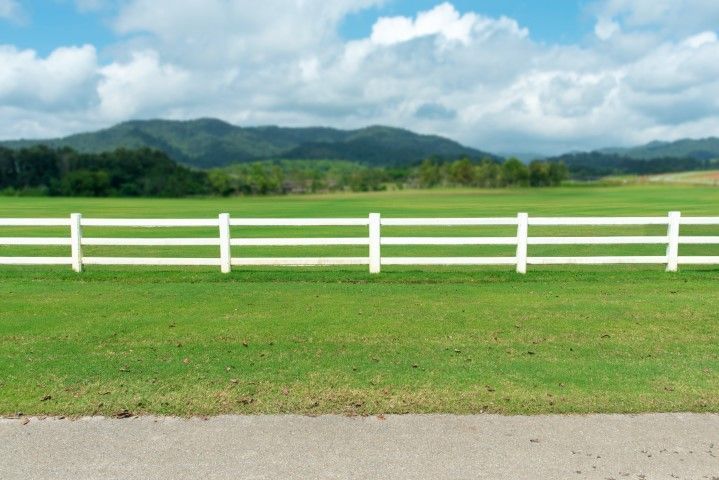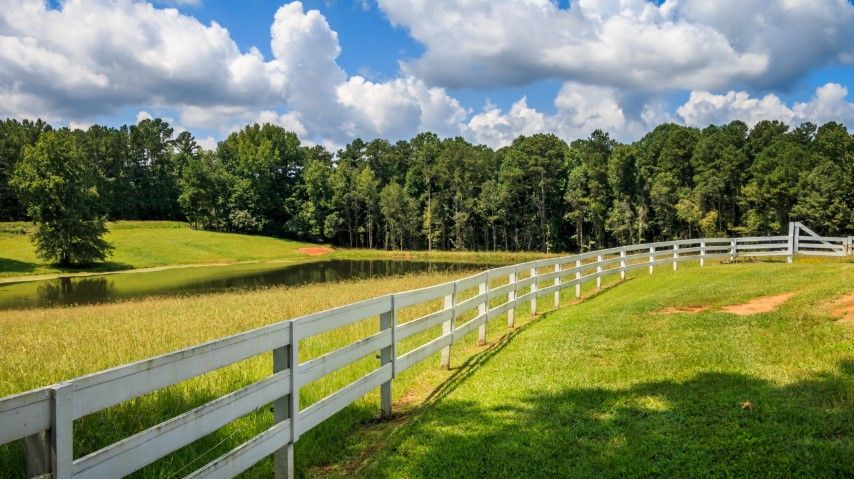Agricultural Fence Services in San Leandro CA
Fencing plays a key role in keeping farms safe, organized, and productive. Local farms and agricultural properties rely on different types of fences to manage livestock, protect crops, and set clear property lines. Whether you’re a small hobby farmer or manage a large piece of land, the right fence can make a big difference in how well your farm runs. In this guide, we’ll walk you through the most common types of
agricultural fences in San Leandro, CA and help you understand which one may be the best fit for your land.
Barbed Wire Fence
This classic option is widely used to keep cattle and other large animals in place. Barbed wire fences are made with sharp wire strands spaced along strong posts. They’re cost-effective and tough, but not recommended for horses or small animals due to the risk of injury.
Woven Wire Fence
Woven wire fences are great for farms with pigs, goats, or sheep. The wire mesh has smaller gaps, making it harder for smaller animals to slip through. These fences are strong, flexible, and long-lasting, which makes them a smart choice for many livestock owners in the area.
Electric Fence
Electric fencing is ideal for both temporary and permanent setups. It works by delivering a mild electric pulse when touched, training animals to stay within the boundary. This type is popular for rotational grazing and offers a lot of flexibility. It’s also easy to move or adjust as your land needs change.
Post and Rail Fence
For a more traditional look, post and rail fences are a favorite. They’re often used for horses due to their safe design and attractive appearance. While they may cost more than other types, their charm and strength make them a common sight on equestrian farms.

Deer or Wildlife Fence
If your crops are being damaged by deer or wild animals, a high-tensile wildlife fence may be the solution. These fences are tall and durable, designed specifically to keep out unwanted visitors. They help protect gardens, orchards, and sensitive farm areas from being eaten or trampled.
Temporary Fencing
For seasonal needs or moving herds, temporary fencing such as plastic netting or portable electric fencing can be very useful. It’s quick to install, easy to take down, and works well for short-term grazing areas or events.
Choosing the right fence depends on your land, livestock, and long-term goals. We provide professional agricultural fencing solutions tailored to unique farming needs. Our team understands the local environment and delivers fences built to last, protect, and perform. If you need help deciding which
residential,
commercial, or agricultural fence is right for you—or if you’re ready to install a strong, reliable fence—contact us today. We’re here to answer your questions, provide a free quote, and get your project started. Let’s work together to build a fence that supports your land and protects your hard work.

How to Pick the Right Agricultural Fencing for Your Needs
Choosing the right fence for your farm or land is an important decision. A good fence helps keep animals safe, protects crops, and marks property lines clearly. But with so many types of fencing out there, it can be hard to know which one fits your needs best. That’s where we come in. We’re here to help you make the best choice for your land, your animals, and your budget.
Know Your Purpose
Start by thinking about what the fence is for. Are you trying to keep livestock in? Keep wildlife out? Protect crops? Each goal needs a different type of fencing. For example, cattle need strong wire fences, while gardens might do fine with lighter options. Knowing the purpose will help narrow down your choices fast.
Choose the Right Materials
Agricultural fences can be made from wire, wood, electric, or even vinyl. Woven wire is great for sheep, goats, and pigs. Barbed wire works well for cattle but should be used with care. Electric fences are easy to install and control animals with gentle shocks. Wood fences look nice and are strong, but they may cost more. Think about how much maintenance you're willing to do and how long you want the fence to last.
Consider Your Animals
Different animals need different fences. Horses need smooth wire or wood to avoid injury. Goats are known for escaping, so you’ll need tight, tall fencing. Chickens require smaller mesh or wire to keep them in and predators out. Knowing your animals’ behavior will help you pick a fence that works well and keeps them safe.
Think About the Land
The shape and size of your land matter, too. If your land has hills, uneven ground, or wet areas, you’ll need to plan for extra support or flexible fencing. In large open fields, a strong and simple fence like barbed wire or electric might be enough. For smaller areas, you may want something more solid or decorative.
Ready to install or upgrade your farm fence? We’ll work with you to choose the best fencing for your land, animals, and budget. With our years of experience and friendly service, you can count on us to do the job right. Contact us today for a free estimate and expert advice. Let’s build a fence that works for you!
How Agricultural Fences Support Crop Safety and Livestock Control
Agriculture is more than planting crops or raising animals—it’s also about protecting what you’ve worked hard to grow. One of the most important ways to do that is by installing proper fencing. Agricultural fencing plays a key role in both farming and livestock management. It helps keep your land organized, your animals safe, and your crops protected. We know how valuable a good fence is to farmers and landowners. Whether you manage a small family farm or a large ranch, the right fencing can make a big difference in how you work and what results you get. Let’s take a look at four important reasons why agricultural fencing is so useful.
Protecting Crops from Animals
Fences help keep unwanted animals like deer, rabbits, or stray livestock away from your crops. Without a barrier, your plants can be damaged or even destroyed overnight. Agricultural fencing acts as a strong line of defense, saving your harvest and your income.
Keeping Livestock Safe and Contained
Fences are crucial for keeping animals like cows, goats, pigs, or chickens in one safe place. They prevent animals from wandering off and getting lost, injured, or ending up on roads. A secure fence also keeps predators out, adding another layer of safety for your animals.
Managing Farm Areas Efficiently
Fencing helps divide land into different sections. This makes it easier to rotate crops, separate different kinds of animals, or keep certain areas off-limits. With clear boundaries, you can better control where animals graze or where machinery can be used, helping your farm run smoothly.
Supporting Property Boundaries and Security
A strong fence shows where your land begins and ends, which helps prevent disputes with neighbors or trespassers. It also sends a message that your property is being cared for and watched. This can help reduce theft or damage, giving you peace of mind as you focus on your daily work.
Need fencing for your farm or livestock area? We provide quality agricultural fencing designed to meet your needs—whether it’s for protecting crops, securing animals, or managing land. Our team uses strong materials, offers expert service, and delivers lasting results. Let us help you make your farm safer, more efficient, and better protected. Call us today or visit our website to get a free estimate. With the right fence, you’re not just marking your land—you’re building a better future for your farm.
